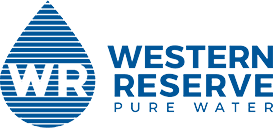Ensuring Excellence in Sterile Processing: Navigating ANSI/AAMI ST108 with Western Reserve Water
Understanding ANSI/AAMI ST108:
The Association for the Advancement of Medical Instrumentation (AAMI) introduced ANSI/AAMI ST108:2023 to set definitive standards for water quality in the processing of reusable medical devices. This standard, replacing the previous AAMI TIR34:2014/(R)2021, provides clear guidelines to ensure patient safety and optimal device performance.
Key Highlights of ST108:
- Defines water quality categories for each stage of sterile processing.
- Outlines responsibilities for facility personnel in maintaining water standards.
- Specifies measurable parameters like pH, microbial levels, and conductivity.
- Establishes protocols for system maintenance, monitoring, and quality improvement.
- Provides guidance for emergency situations affecting water quality.
The Crucial Role of Water in Sterile Processing
Water is integral to cleaning, disinfecting, and sterilizing medical instruments. Impurities can lead to:
- Corrosion or damage to instruments.
- Reduced effectiveness of cleaning agents.
- Increased risk of patient infections.
- Health hazards for medical staff.
To mitigate these risks, “critical water”—water that has been extensively treated to remove contaminants—is essential, especially for instruments contacting sterile body areas.
Water Quality Classifications in ST108
ST108 categorizes water used in medical device processing into:
- Utility Water: Tap water requiring treatment; used for initial rinsing and cleaning.
- Critical Water: Highly treated water free from contaminants; used for final rinsing and steam generation.
- Steam: Generated from treated water; used for sterilization processes.
Implementing ST108 in Your Facility
To align with ST108 standards:
- Water Analysis: Test tap water to determine treatment needs.
- Treatment Implementation: Install appropriate systems to achieve required water quality.
- Regular Monitoring: Conduct routine checks to ensure consistent water quality.
- System Maintenance: Perform scheduled maintenance to sustain system efficacy.
Consequences of Non-Compliance
Failure to meet water quality standards can result in:
- Surgical delays due to instrument contamination.
- Increased operational costs from equipment damage.
- Potential health risks to patients and staff.
Facilities Affected by ST108
The standard impacts various healthcare settings, including:
- Hospitals.
- Ambulatory surgical centers.
- Outpatient clinics.
- Dental and medical offices performing sterilization.
Western Reserve Water: Your Partner in Compliance
At Western Reserve Water, we specialize in providing tailored water treatment solutions to meet ANSI/AAMI ST108 standards. Our services include:
- Customized Systems: Design and installation of water treatment systems suited to your facility’s needs.
- Comprehensive Solutions: Offering pre-treatment, reverse osmosis, deionization, and endotoxin filtration.
- Ongoing Support: Providing maintenance services and regular water quality testing.
Our commitment is to ensure your facility meets the highest standards in sterile processing, safeguarding patient health and enhancing operational efficiency.
